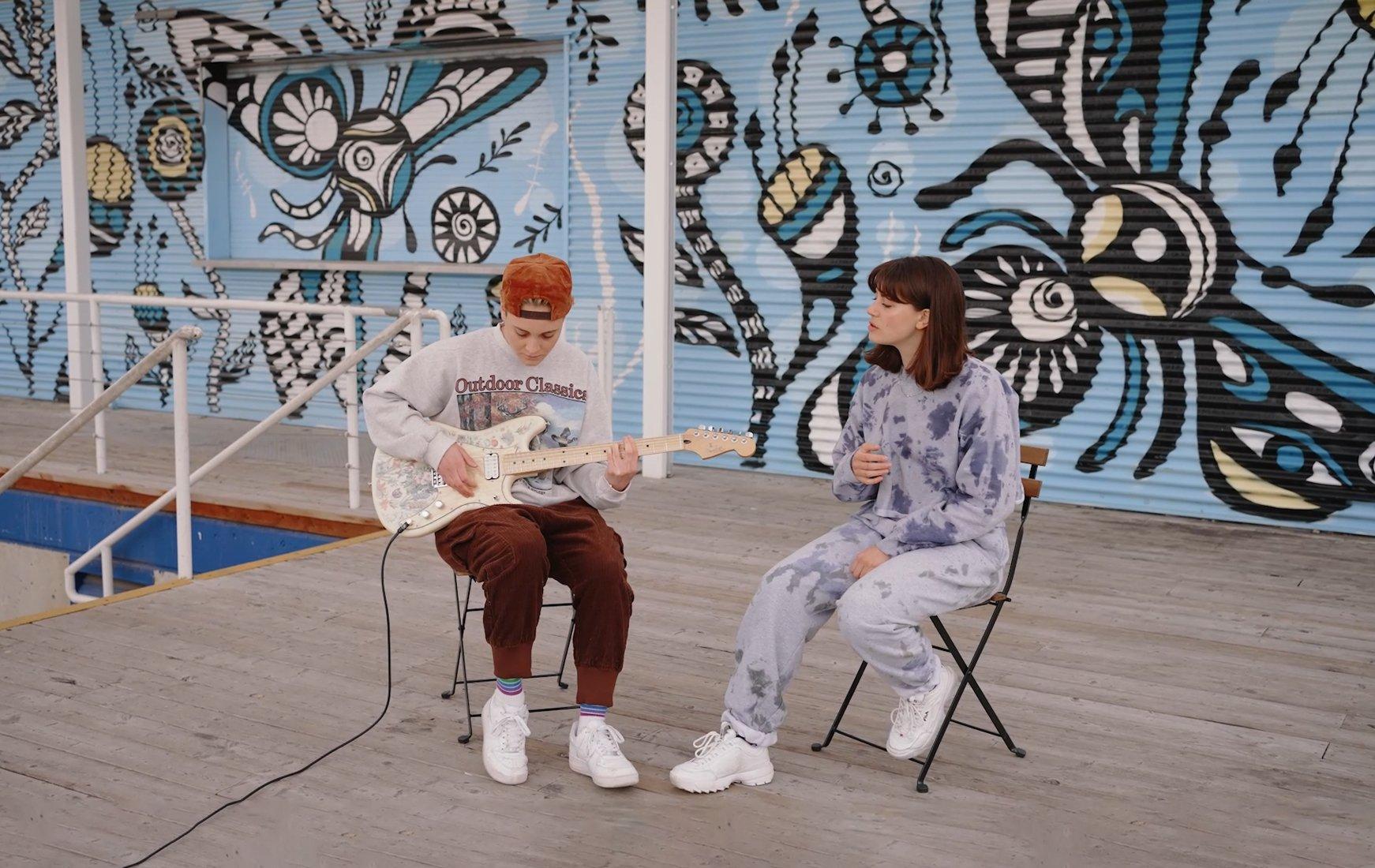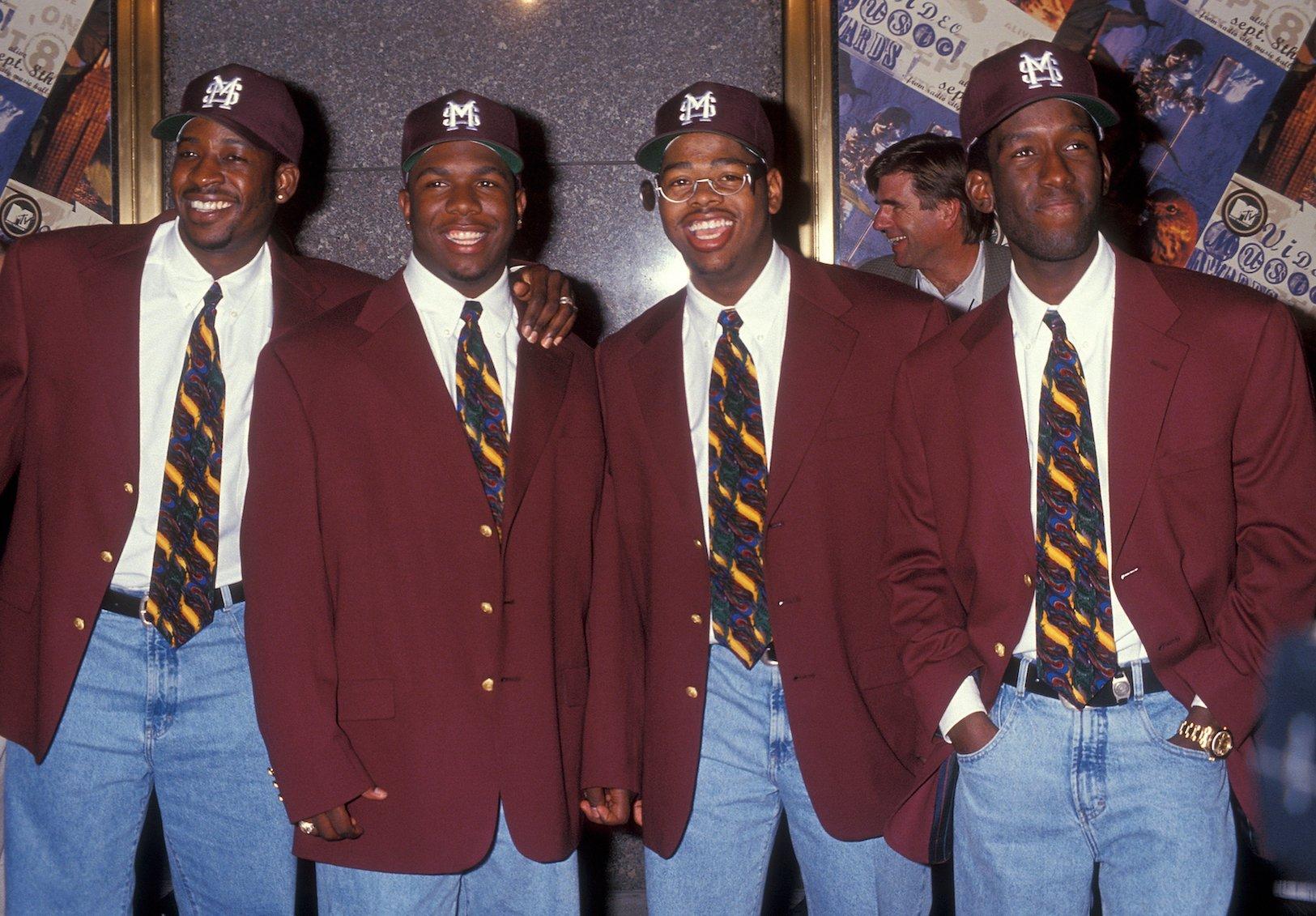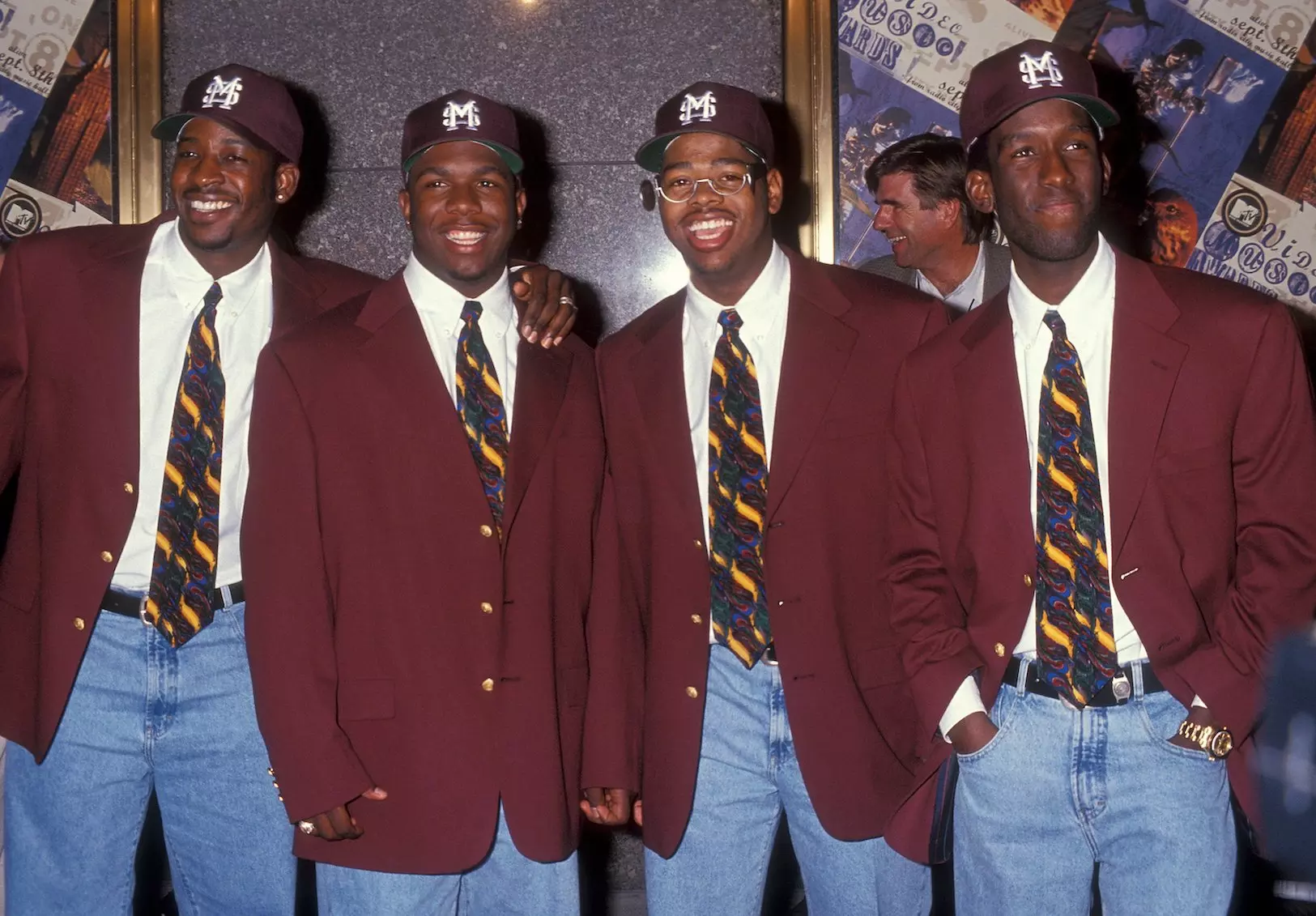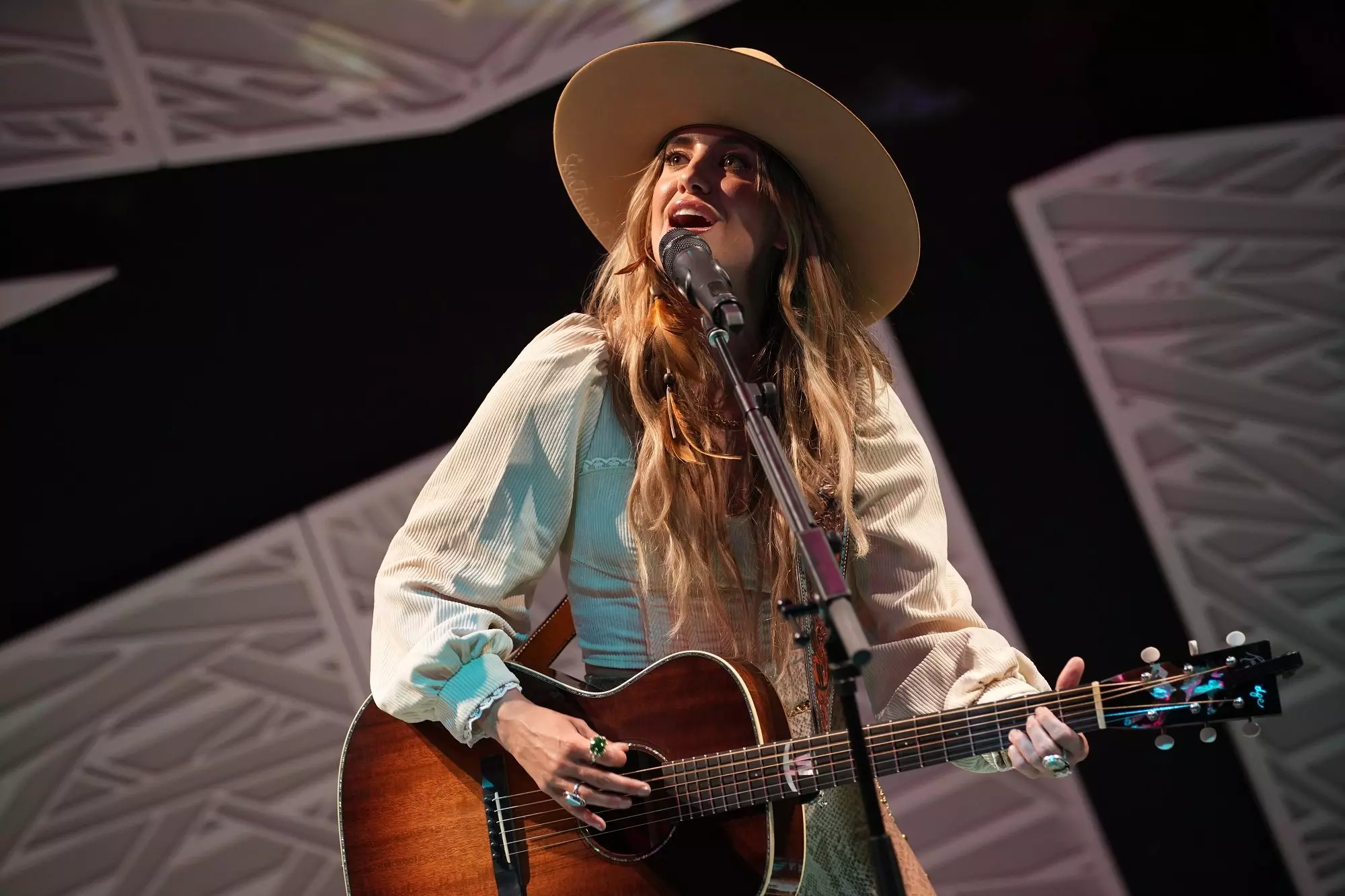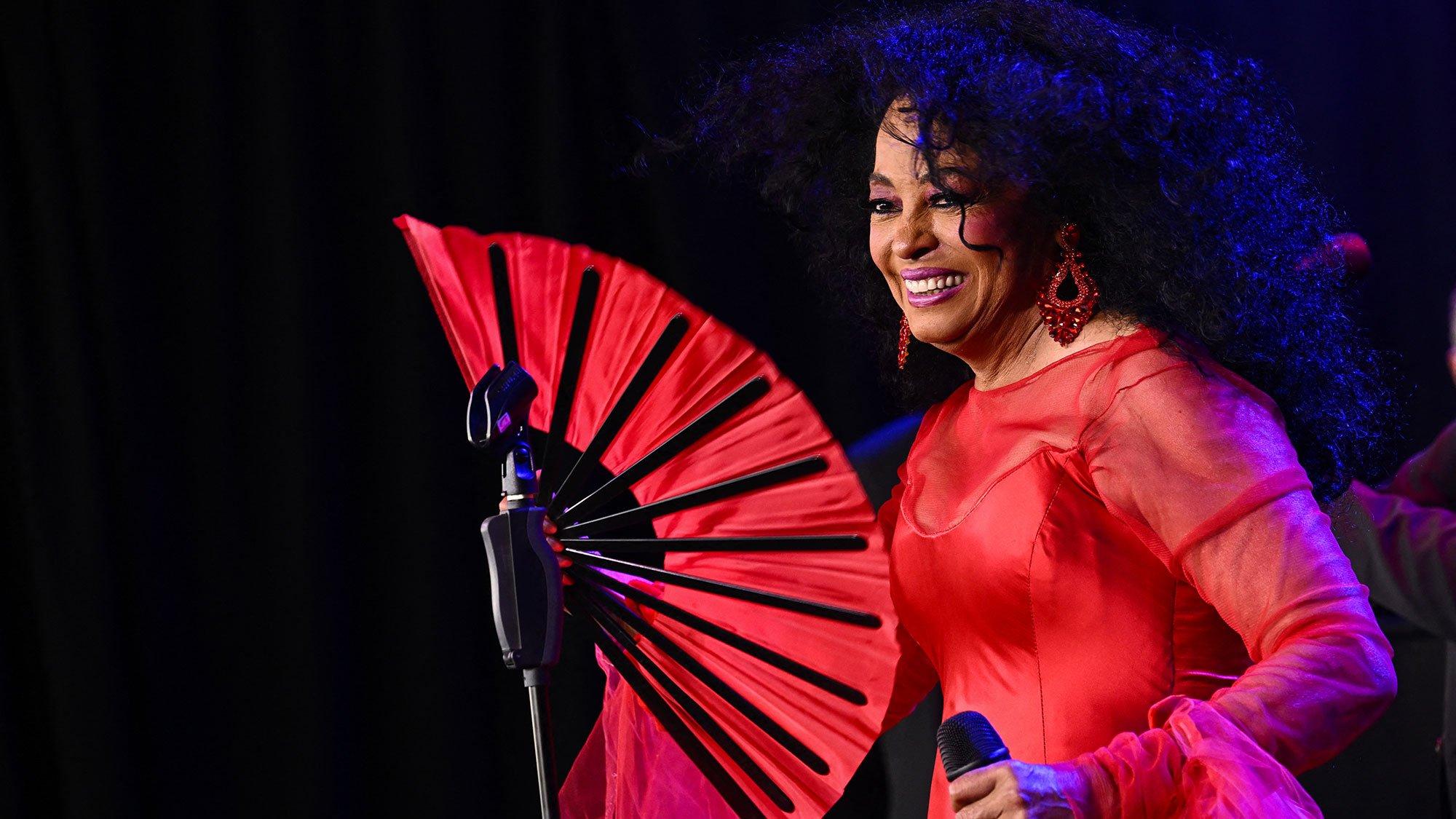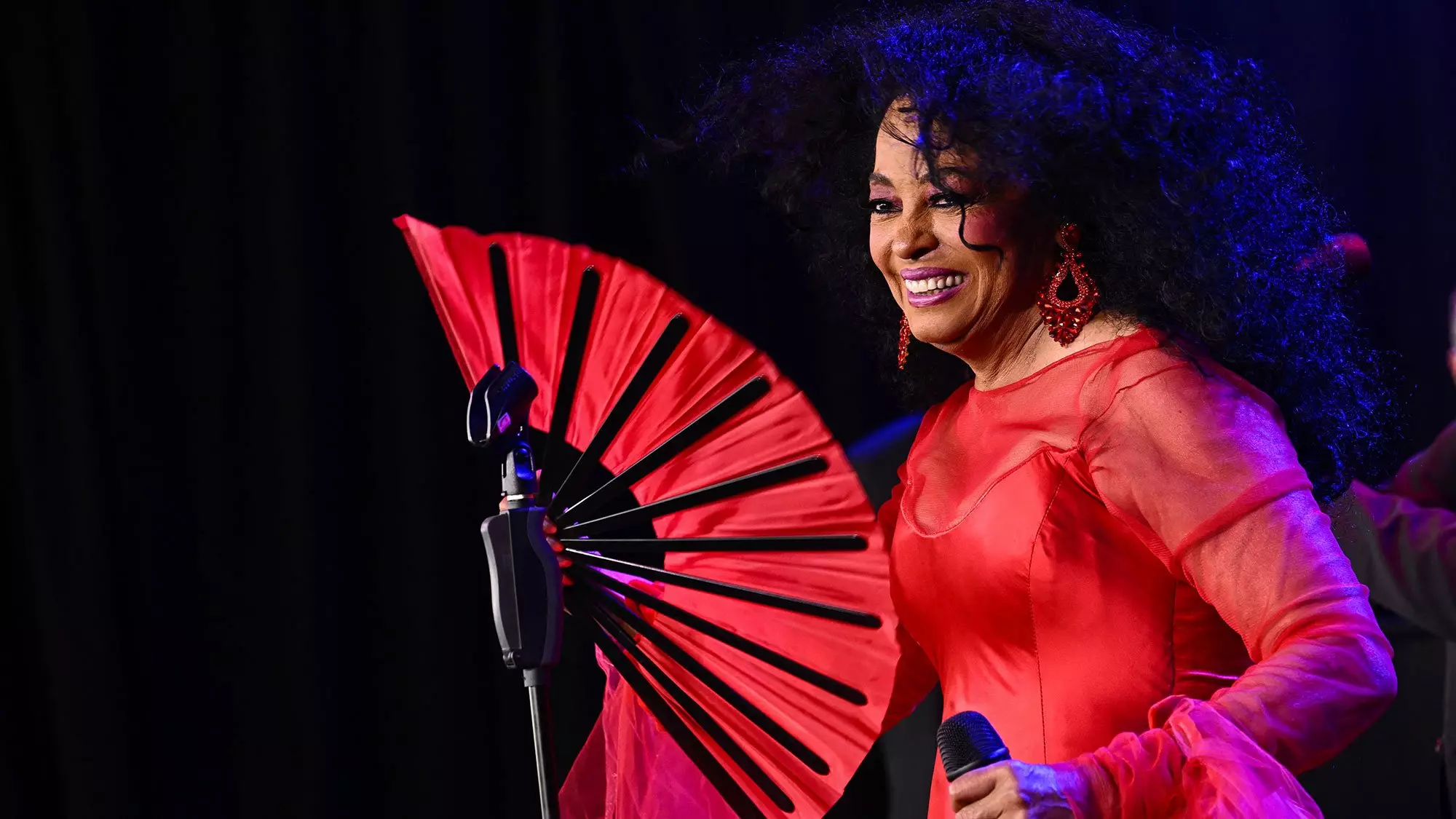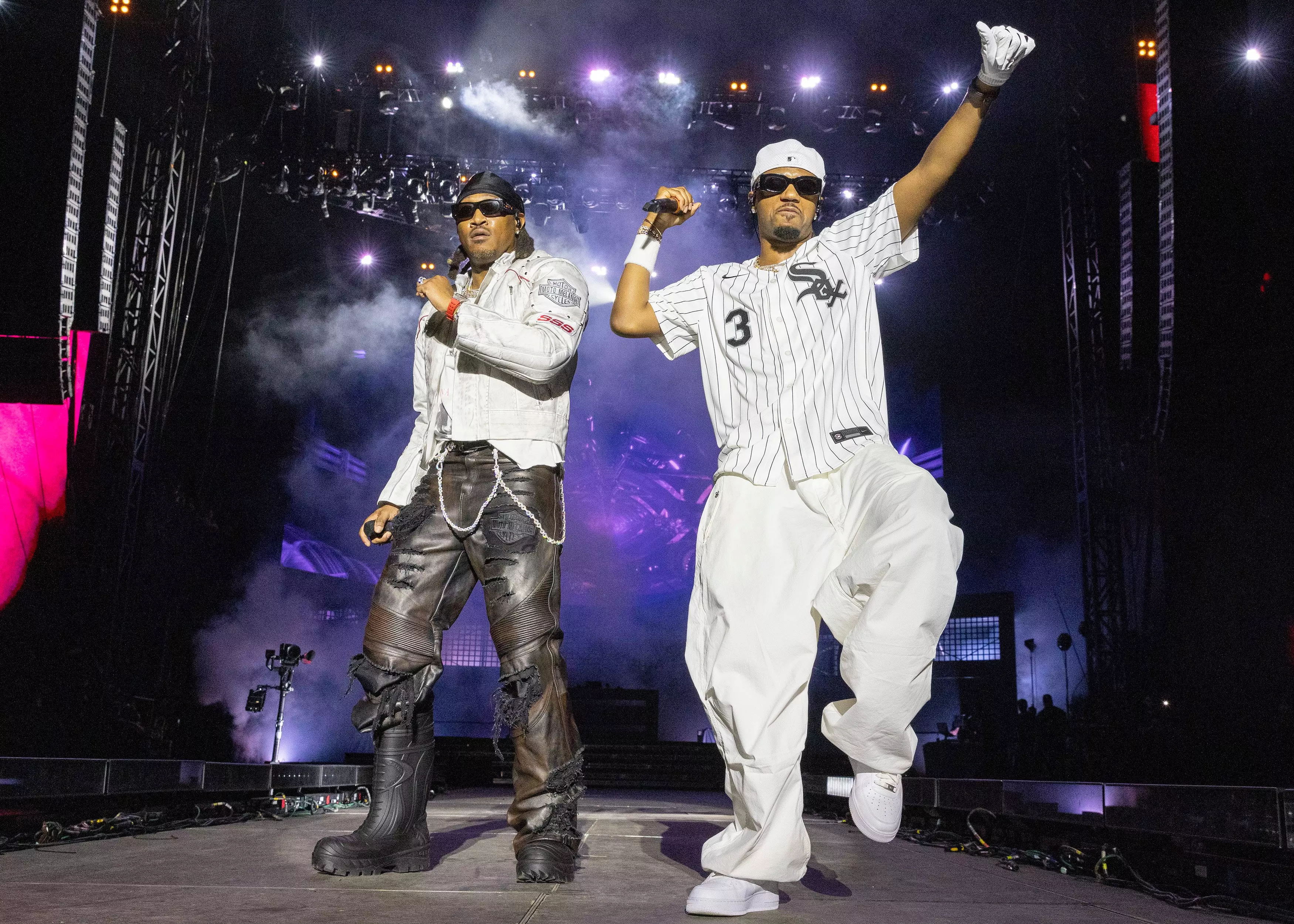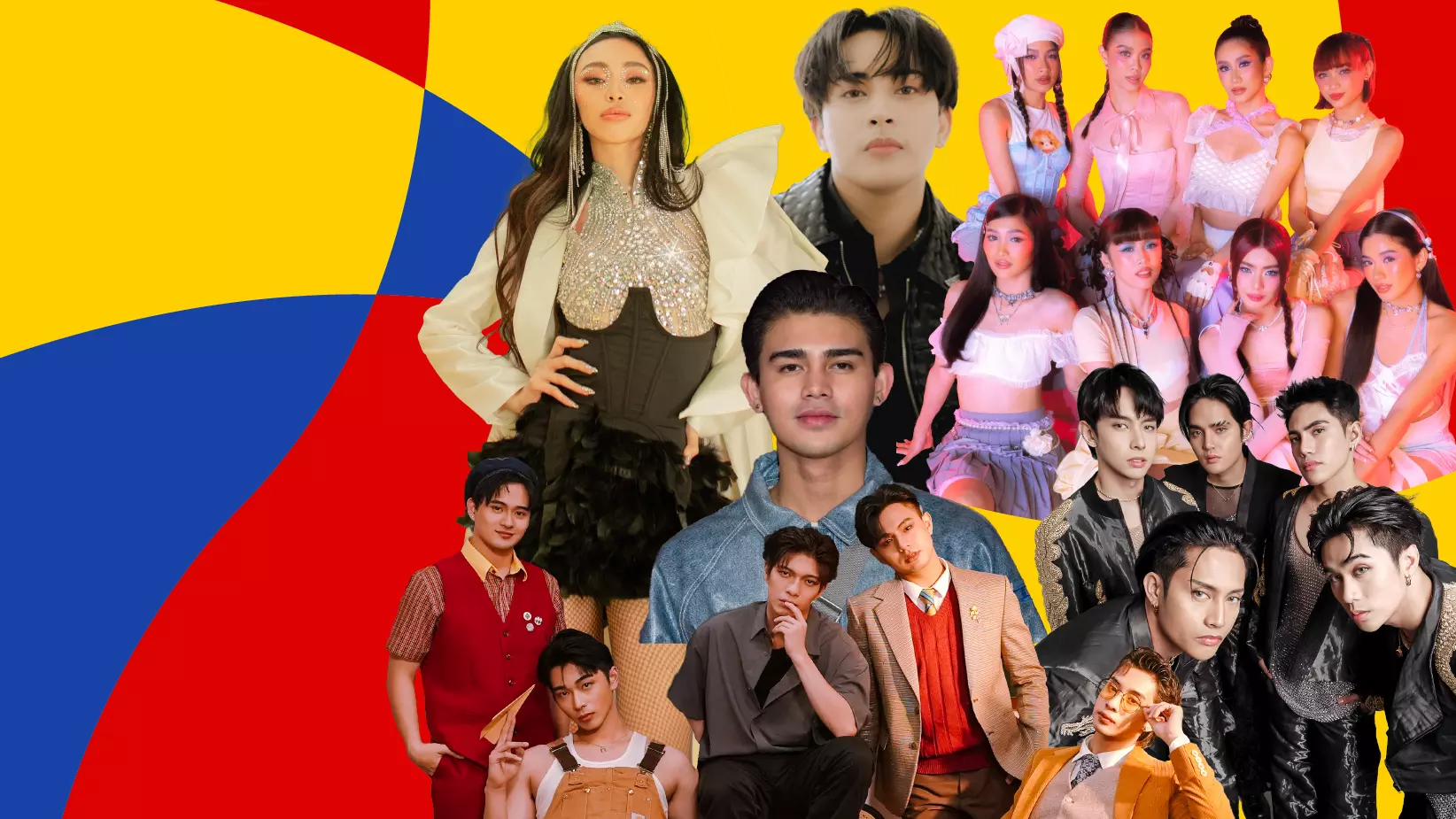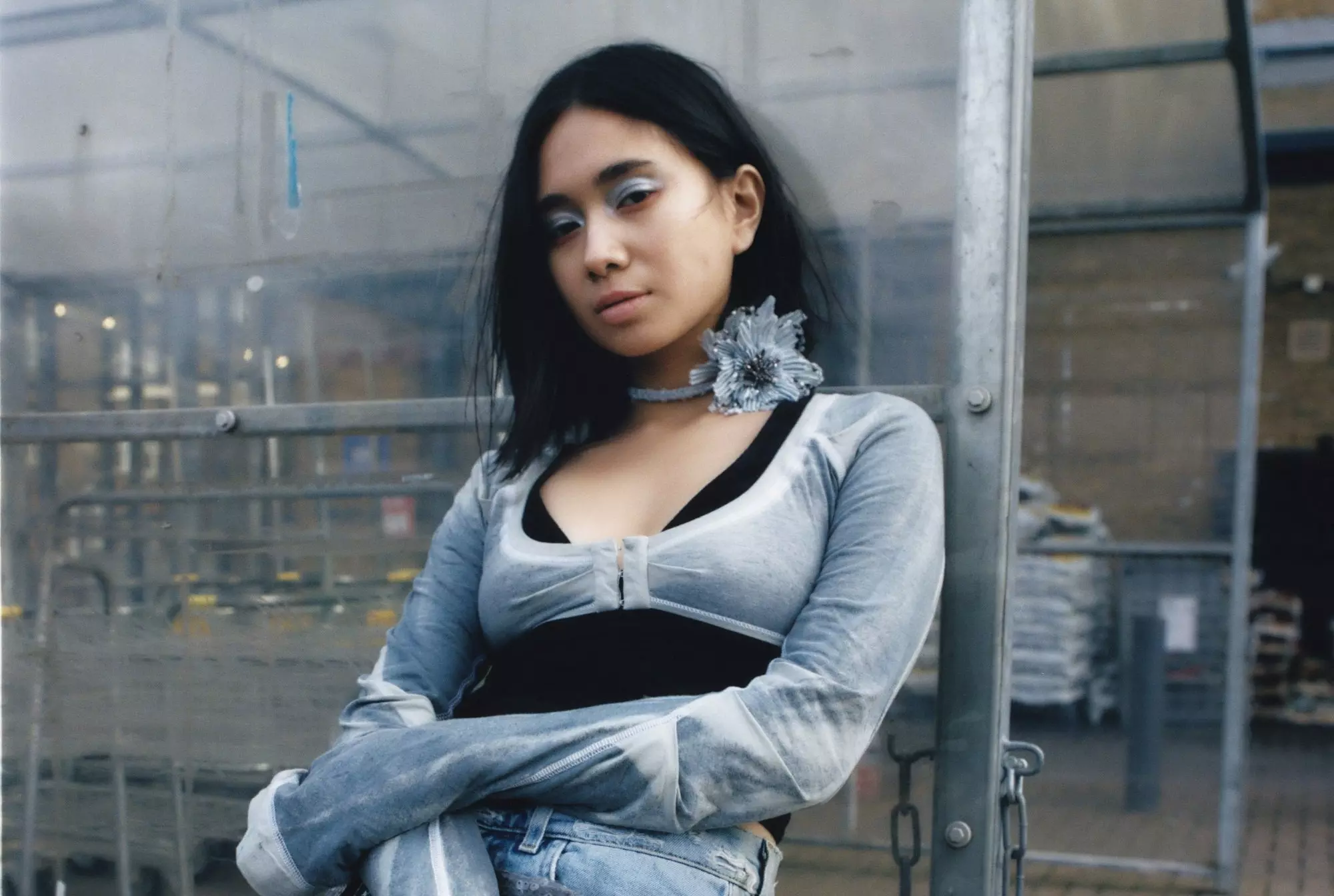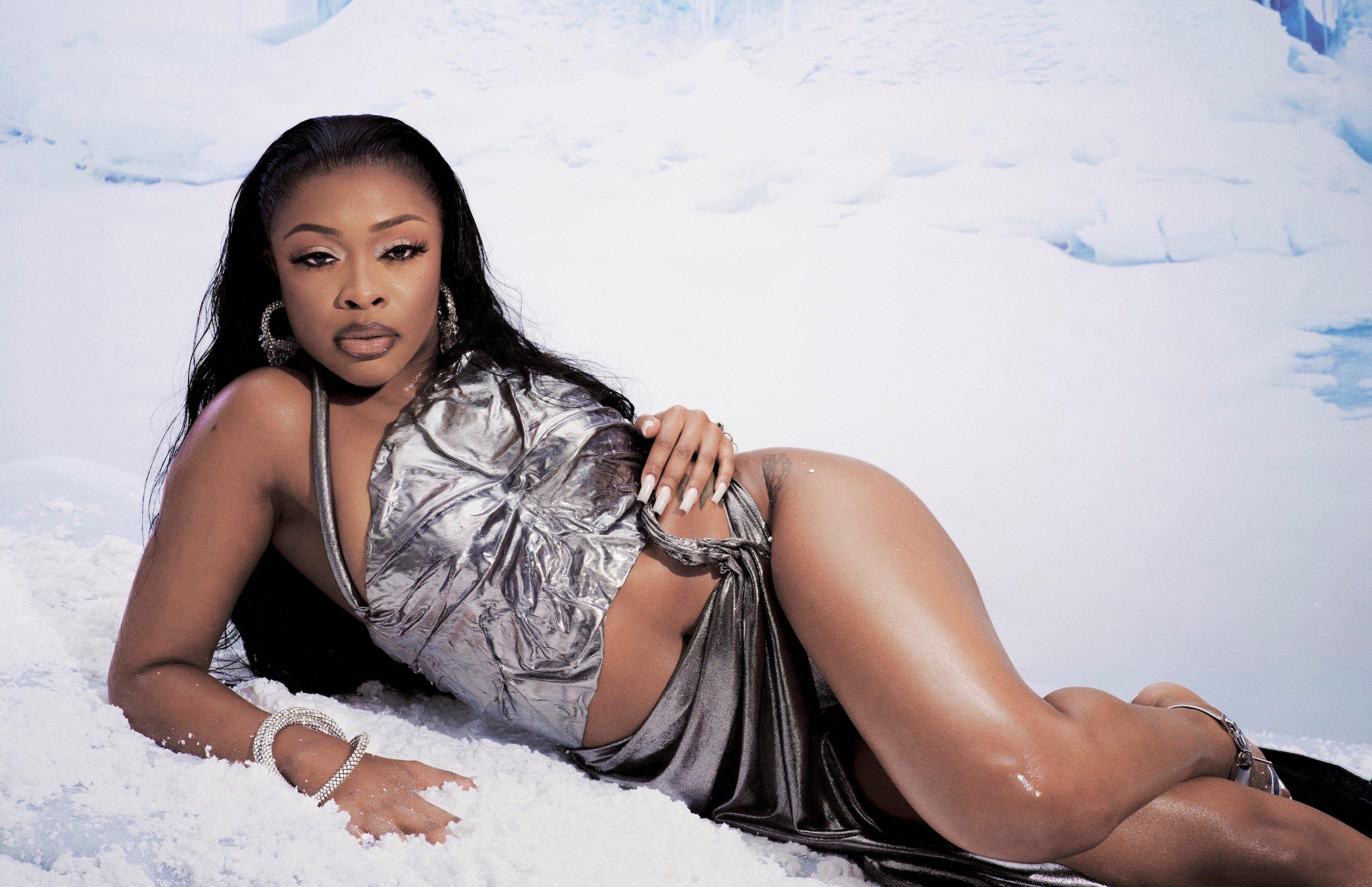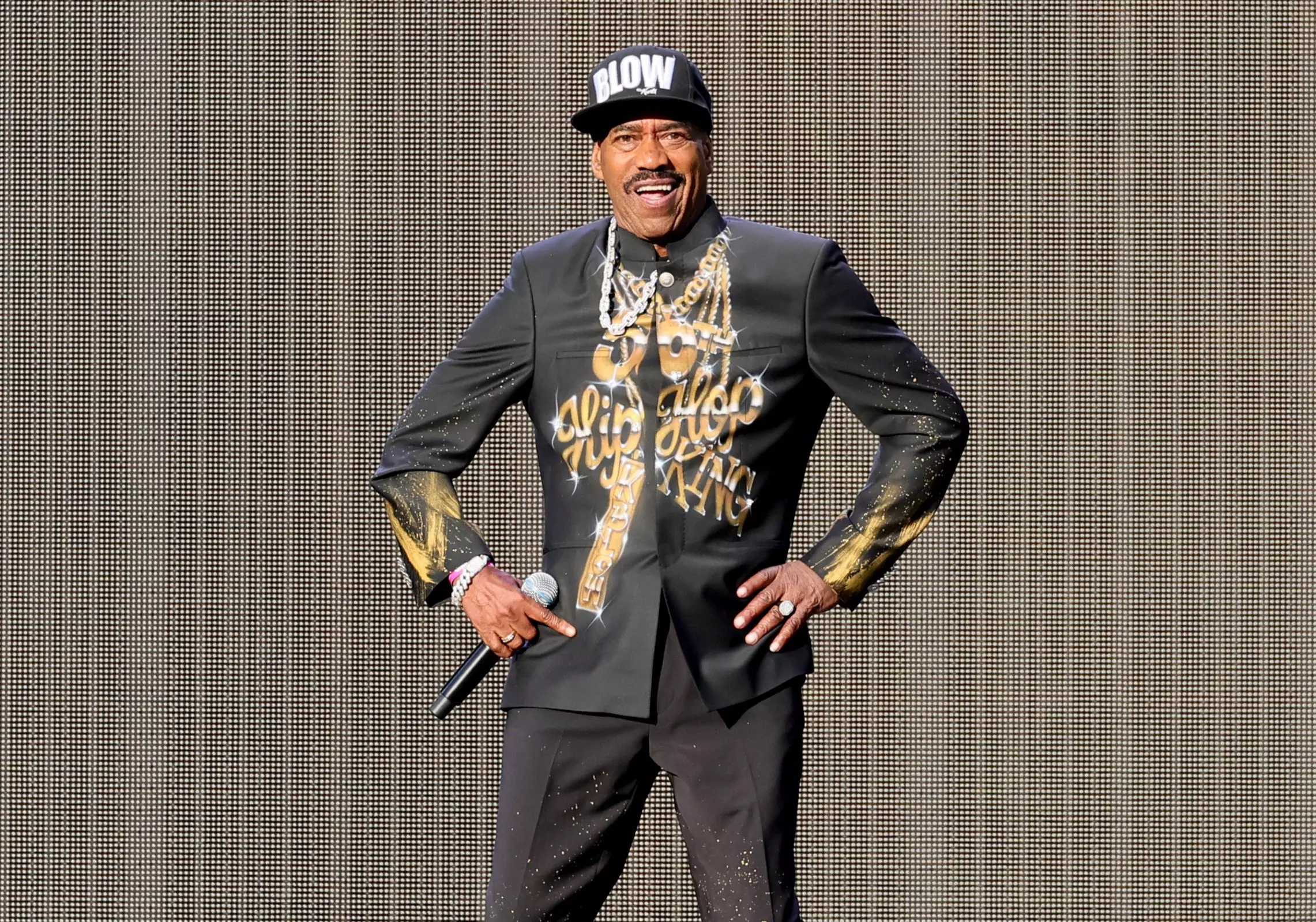At multiple points during our conversation discussing her latest album Buzz, NIKI falls back on one phrase. "I should speak for myself." While she cuts herself off often, physically but gently coaxing herself back on track, NIKI's latest release is defiantly personal.
"I think it's going to mark a new era for me musically. Personally, it is my favorite thing I've ever done." she says of the album.
The past few years of NIKI's life have been spent in constant flux. The artist started her career as a performing artist on YouTube, did a headlining tour in support of her second album Nicole, and eventually became the first Indonesian artist to perform at Coachella (alongside fellow 88Rising labelmate Rich Brian). For the former self-proclaimed perfectionist, the exhaustion and rudderlessness of touring threw open the doors to some much needed introspection. When NIKI found herself alone, she realized had no idea who she was or what she was doing. So, she did the only thing she could do: write songs.
"I write songs as a way to process my life as it's happening. Everyone has different ways of coping, and that just happens to be mine," the 25-year-old singer confesses. Buzz was written between tour dates, with no "concrete vision" in mind; in fact, it was probably the first time that NIKI had truly processed everything that had happened in her career. "Writing 'Buzz' was a very reflection-oriented time. I was making sense of my present and how my past has sort laid down the stepping stones, and everything in between."
Confronted with a constant feeling of being uprooted and the vast unknown, NIKI realized that keeping a tight grip on how she approached, understood, and perceived her emotions was counterproductive. "Writing 'Buzz' was my way to deal with a lot of this existentialism that I was coming into for the first time in my early 20s," she continues. "I feel like everyone is starting to ask the big, deep, difficult questions when they start to live on their own and have to trudge through life as their own person."
With an intimate, oft-minimalistic sound and almost stream of consciousness lyrics Buzz is an album for letting go of control and the learned behaviors of perfectionism in the favor of self-awareness, where NIKI processes "a spectrum of world weariness, of excitement, of joy and pain and all the moments in between."
"Buzz" is where she finds herself anew. She takes her time mulling over the hard questions on "Nothing Can", allows herself to grieve the loss of a great love on "Paths", breaks the cycle of generational trauma on "Strong Girl" and "Heirloom Pain", and learns that there is "freedom in accepting that everything is just incomplete and messy all the time."
This interview has been edited and condensed.
When I was reading about the album, it appeared that you faced an identity crisis while making it. Do you feel satisfied with it or are you anxious about how people will receive it?
I think it's both. Anytime I'm on the cusp of releasing something, I'm always a little bit nervous as to how people are going to receive it. At the same time, I feel like I made this record with full conviction in myself and in my artistry.
I think this is really the first time that I'm able to say that. I steered the making of this record myself.
A lot of the songs on 'Buzz' felt like waves, with a very natural flow and progression to the songs on the album. It felt like you were giving into a feeling or embracing something. Did you allow yourself to feel [this flow] or did you have a concrete vision?
Buzz was the first album that I made that I didn't actually have a concrete vision in mind. It was just an organic synthesis of what's been happening over the past two years.
Two years ago I started headline touring, and that inspired a lot of the album. Just this feeling of constantly being on the go, being uprooted time and time again, so the theme of acceptance is a huge one on this album. The acceptance of life being a constant state of uncertainty. We, as people, are constantly developing and irresolute. So this album was kind of made to process those feelings.
It’s an album of nuance, of nestling into this area of gray that we so often wrestle with in life. I definitely tend to see things as black and white. I was raised to think that way, with my Indonesian upbringing. My mom was very religious, so I think this album is about unlearning a lot of that stuff, taking what serves you from childhood and letting go of what doesn't, and embracing that things will feel messy very often.
Yet you ended the album itself on a very hopeful note. Was that intentional?
Absolutely. Sometimes I joke that the universe has its foot on my neck right now. But I think, in general, I'm quite an optimistic person, or at least I try to be. I gravitate towards art or music that tends to skew that way, because I think we all need a little bit of hope in this very difficult, scary world.
The record ends with "Nothing Can." I love that song, because it's a blend of optimism, but also it's just telling it as it is. Like, nothing and no one will be able to save you and I think that was an important thing that I had to teach myself.
Growing up, you watch a lot of movies and so much of media is like, somebody's going to come swooping in knight in shining armor-style and maybe rescue you. Or a job will save you from your pain or the perfect fill-in-the-blank is gonna be the answer. That's impossible. You are responsible for your own happiness. What "Nothing Can" is about is that despite the mess and the suffering and the pain there are still moments in between that make everything worthwhile.
Did you go through a similar process of realization when it comes to making music? A moment where you thought, 'Maybe I'm expecting my career to make me happy but it should be the other way around?'
How do I eloquently say this? It's like... before Buzz, and even before Nicole, the way I perceived making music was like aceing assignments. I think I had always been a little bit of an overachiever. Buzz was my first real, true exercise in just writing and making art just to make art for myself versus to fulfill expectations. I found a lot of artistic healing through making this album because it was the first time I really kind of put my head down and was like: I'm going to make an album for myself in a way that I want and that feels authentic.
I realized quickly that every time I hit a milestone, I would aspire for the next milestone. And then there's always sky above sky — that is what my mom always told me. There is always something more to aspire to. So you really have to find peace and joy within yourself in order to show up the way you want to in your life. I wrote Buzz, just to help myself let go of the perfectionist streak.
So, if you were to describe the relationship between 'Nicole' and 'Buzz' knowing what you do now, what would you call it?
I have fondly nicknamed Buzz Nicole's older, wiser sister. Nicole walked so that Buzz could run. Nicole was a very diaristic window into my past and Buzz is very much rooted in my present. Nicole is about the subject matter that's important to you when you're 17, like your first ever breakup with your first love that feels so cataclysmic and earth-shattering. That's no longer relevant to me the same way that things are happening in my 20s now.
Nicole was also sonically a lot more pop. On Buzz, I was inspired by a lot of artists. Obviously Joni Mitchell, and a current artist that I really love that I feel like echoes Joni Mitchell is Madison Cunningham. I am so inspired by her musicianship and guitar playing specifically. It made me think: I would want to have an album that I'd be so stoked to play every single night for however long on tour and I never get sick of these songs. Buzz is more musical, and there is a looseness to it that I feel Nicole lacked.
I also remember you saying in an interview that back when you wrote 'Nicole,' you went very heavy on imagery and metaphors. In contrast, 'Buzz' is still poetic, but very rooted in practicality. Do you think that's a natural consequence of growing up, and dealing with the realization that once life has hit us in the face, we don't prefer not to look at things with rosy lenses?
[Laughs.] I think it is a natural consequence of growing up. I think Nicole was so unapologetically schmaltzy. The way I wrote, I definitely cringe now because, you know, it's that 17-year-old drama. Everything feels so blown up out of proportion when you're 17, right? It was so emotional. The way I write [now] is totally different because there's a big dose of practicality and pragmatism in the way I perceive things. I think it's a lot more emotionally healthier to balance emotion and reason, than having emotions just completely drown reason.
Buzz, specifically, is very much a reflection of the kind of writing that I gravitate to now, which is a lot less like "My world is going to end because you're leaving." Because you know when you're 25, you don't really necessarily feel that anymore. I feel that's really obvious in songs like "Take Care" and "Paths" where it is an older kind of love. A significant relationship of mine ended, and I still very much have only respect and love for this person and also wanting the best for them. I feel like, on Nicole, it was all so punitive. It was like, "You must be punished for how you hurt me!"
Was there anything that helped you learn to deal with things in this way? I did read that the album also contains some lessons that you learned in therapy.
Therapy has had a direct link to this record. Therapy has been transformative in the way I think and therefore the way I think shapes the way I write, and the way I write shapes the album that I make.
For example, I call "Heirloom Pain" and "Nothing Can" my "radical acceptance" songs. That was a term that I learnt through therapy. Radical acceptance does not mean demeaning your grief or repressing your pain. Radical acceptance is saying, This really sucks, but I'm going to respond to this in a different way. Without therapy, I probably would still be writing very punitive schmaltzy Nicole songs.
I think everything can be processed, though! I feel like Buzz has a balance. I feel like I'm still pretty petty on "Colossal Loss" and "Focus" is just shade central.
"Focus" really made me think you must be in your 'I'm not your therapist" era.
Exactly, I'm in my "no clowns" era. [Laughs.]
Radical acceptance makes a lot of sense. "Heirloom Pain" has this keen realization that our parents did their best, and they're only human, so you can't really blame them.
I think it humanizes everybody in [your family tree] that came before you, and at the very end, I flip it around onto [the listener] and [the song says] "You're gonna fall in love and f— up too."
We are born and everyone does the same thing over and over. We never learn! But at the same time, it doesn't shy away from the genuine pain and trauma. I literally called out my dad's temper and my mom's mistakes. Sometimes I'm like, 'Why did you guys not think about this before you had kids?' [Laughs.]
As you grow up…your parents kind of fall off the pedestal, you start to get on their level. You see them as humans.
Loading...
This is such a primitive album for you in some ways. What was the recording process for this like?
When I am in work mode, I don't always feel it. If I'm singing a painful song, usually that hits me a little bit later. When I recorded "Paths," that was basically a one-take thing that I did in my own studio at home. I remember just singing through the whole song for the first time, and at one point in the middle, I choked. I started to tear up because I felt so emotionally moved.
With this album specifically, I've learned my methods. I never do more than three takes, especially for vocals. If I do more than three takes, it starts to... you know the feeling of when you look at a word too long and the word doesn't look like a word anymore? When I sing the same thing too many times, I start to not feel it anymore. ["Paths"] felt like exposure therapy. I wrote the thing that I was really scared to write and then I was singing it.
It's interesting you say that you don't like singing your songs on repeat. What is your relationship with touring like then? Does it get exhausting performing the same song or set over and over?
Touring is definitely a different beast. I feel like it's more important to get the right take when you're recording an album, because an album is forever. A show is different every single night. To be completely honest, sometimes as a performer, if you do it so many times like it's muscle memory. You can slip into autopilot over time. The constantly changing variable on tour is the crowd. So whatever is happening in the crowd is usually enough to inject a newness to the show.
I also wrote Buzz for this reason. I wanted an album that felt looser and felt more relaxed even in its DNA so that when I go on tour, I can play it as loosely as possible to create space for variety.
It also feels like you've learned to be more accepting. Your recordings used to be a fairly solitary affair but now you've actively started involving more people in it.
I definitely ventured out into involving more collaborators and it's not just me and my laptop and headphones anymore, but I definitely still am very selective with who I let into my musical universe, because I have a specific vision of how I want things to sound, and what kind of environments I work best in.
The way I like to work is that I start a skeletal framework for [a song], I produce it a little bit, record some parts. Then I call a producer that I respect, who I've seen work on my other favorite artists and then I give them that framework and then we finish it together. I worked with Ethan Gruska, who worked with Phoebe Bridgers, and Tyler Chester – who helped me produce "Strong Girl" – worked on all of Madison Cunningham's stuff. It's really fun to keep the circle small.
A lot of songs on 'Buzz', like "Blue Moon," "Paths" and "Magnets" talk about putting faith in a higher power.
I grew up very religious. My mom was a singer at church, so God was always an integral concept growing up. I wouldn't call myself a Christian now, but I definitely still believe in something greater than all of us. Julia Cameron, who wrote The Artist's Way, said: "God can be God to you, or it can stand for Good Orderly Direction." I think it is a beautiful way of thinking about it.
I definitely am also an astrology girlie. I do believe that we were all made with intention. I do think there's a great creator out there and I believe that there is something out there — the universe, God, whatever you want to call it — that's guiding us or has our best interest.
Do you like revisiting your past stuff? I ask this because it feels like with every new album, you have proverbially wiped the slate clean.
I will literally listen to my work or my music a million times before it's out. And then once it's out, I rarely ever revisit it.I almost see it as yours; it's the world’s now. It's ours. It's not something that I have been intentional about. Even when I had a YouTube channel when I was 15, I did this. I would watch my video and edit it five million times. And then as soon as I uploaded it, I never watched it again.
I guess I do this to process my life as it's happening. Once it's shared, it's difficult for me to view it as just my own anymore. That's why every time I move on to a new project it feels like a completely different thing, because I never look at my past work. I never draw from that as an inspiration. I look forward instead.

